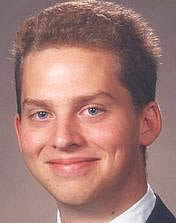The Forgotten Beau Zabel
April 12, 2012

NO STATE prosecutor ever met with the parents of Beau Zabel and promised to seek justice for their dead son, as Florida Prosecutor Angela Corey did recently with the parents of Trayvon Martin. Zabel was shot in the neck on a street in Philadelphia in 2008 in what a police detective called “a robbery gone terribly wrong.” No public outrage was expressed by prominent political officials or newspaper columnists. His killer was never apprehended and Beau Zabel remains largely forgotten except by those who knew him and by overworked Philadelphia homicide detectives who occasionally reopen his file.
It’s interesting to compare the shooting death of Zabel in June of 2008 and the Martin case.
The Victims
Zabel, 23, was a former Eagle Scout who grew up in Austin, Minnesota. He was a college graduate, with a degree from Augustana College in philosophy, Spanish and math, and was in Philadelphia to teach math to underprivileged students in the public schools. He was working at a Starbucks to support himself until his teaching job started.
Martin, 16, was a high school junior who was under a 10-day suspension for an uncertain offense. He went under the tag “No_Limit_Nigga” on Twitter and tweeted messages such as, “fuck a bitch. any bitch. who you want? take yo pick but you gone take yo time.”
The Scenes of the Shootings
Zabel was walking alone through the Philadelphia Italian Market area on his way home from work. It was 1:30 a.m. Zabel had iPod buds in his ears. He was extremely naive.
Martin was walking in the back alley behind townhouses in a middle class neighborhood when he was seen by George Zimmerman, a resident on Neighborhood Watch. Martin, who was wearing a hoodie, was on his way to his father’s girlfriend’s house.
The Crimes
Zabel was shot once in the neck. His iPod was removed from his front pocket. He was left to die on the street and his body was not discovered until hours later.
Martin was shot while, according to an eyewitness, sitting on top of Zimmerman and pummeling his head. He was believed to have already broken Zimmerman’s nose and to have knocked him to the ground. Zimmerman said Martin accosted him after he had called the police to report a possible prowler.
The Shooters
A black man in his 20s was seen on surveillance video taken near the scene of the Zabel shooting. He placed an object in a planter shortly after Zabel was believed to have been shot. A short time later he returned to retrieve it and placed it under his belt. He has never been found and the object is believed to have been a gun or an iPod.
Zimmerman was an insurance underwriter at the time of the shooting. He never left the scene and made himself immediately available to answer questions. He was known for a developed sense of civic responsibility. He had persistently sought punishment for the white assailant of a homeless black man. He tutored children in his spare time.
Public reaction
A $35,000 reward for information leading to an arrest in connection with Zabel’s death has been offered. The crime was featured on America’s Most Wanted. Zabel’s mother has wept in interviews and said her son encountered “evil” that night. His parents never held a press conference or rally. As far as I can ascertain, they have not been interviewed by journalists since 2009. There is no entry about Zabel in Wikipedia. Arlene Ackerman, head of the Philadelphia School District, called the murder a “senseless loss.” In other words, it was without meaning.
Despite his claims of self defense, Zimmerman has been charged with second degree murder. Martin’s death has led to a national outpouring of grief, rallies, statements by the president, violent incidents in which criminals said they were motivated by revenge for his death, and intense sympathy for his family. Martin’s death is considered full of meaning. Has anyone called it “senseless” or an encounter “gone terribly wrong?”
It is not considered unusual for blacks to heavily identify with a black who has been killed, to look at the photo of a black teen killed and say, “That could have been my son.” It is considered unacceptable for whites to feel this same sense of identification, to express moral outrage over black criminality and to see their own sons in the faces of the dead. For this reason, Beau Zabel – one of many victims of black crime — will remain largely an unknown name. And so will many others like him.
— Comments —
A reader writes:
I lived in a mixed neighborhood several years ago. When some items were stolen and I contacted the police, they recommended that I walk around my neighbors’ yards in the morning looking in bushes, shrubs, dark corners and the like. I thought this behavior was strange, to say the least. The officer explained that the Negro thieves in the neighborhood will steal, hide their loot in the vicinity of the crime, then walk home unmolested. If the police stop and search them because they “match the description” they will have no evidence in their possession. They can then yell about “racial profiling” and get the Negro community members all fired up against evil white people. If they are not stopped, they can return to the stash the very next morning and retrieve the loot. If the thief is stopped at THAT point and the loot found in his possession, he can say that he just happened by and saw something abandoned in the bushes–he would also start yelling about “racial profiling.”
What Zabel’s murderer did in the videotape–dumping the loot then retrieving it later when the coast is clear–is exactly what one would expect.
